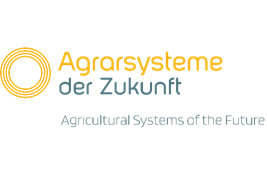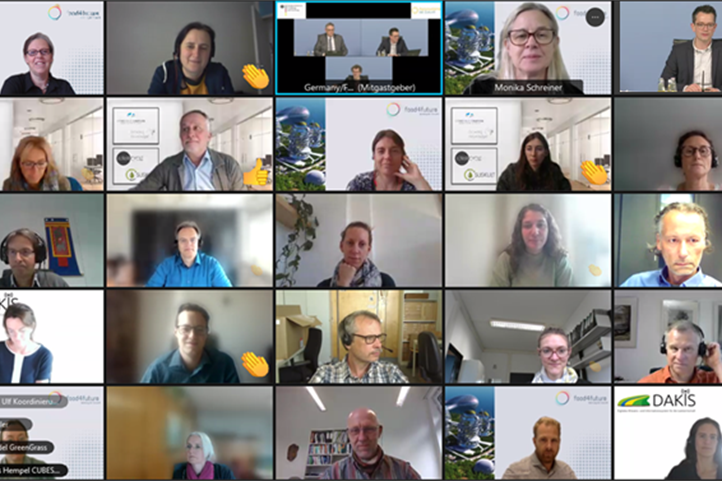14.10.2021

The 2nd status seminar of the BMBF funding initiative "Agricultural Systems of the Future" took place from 28 - 29 September 2021. The online conference was attended in particular by the funded collaborative projects with over 200 contributors.
The sustainable design of agricultural production is one of the central challenges of the 21st century. In order to research and test possible scenarios for an agricultural economy of the future, the Federal Ministry of Education and Research (BMBF) initiated the funding measure "Agricultural Systems of the Future". Eight inter- and transdisciplinary consortia in Germany are dedicated in different ways of transforming the agricultural economy and developing innovative solutions.
After welcoming addresses by Andrea Noske, Head of the BMBF's Bioeconomy Division, Dr Eva Leiritz from the Project Management Jülich (PtJ) and Prof. Monika Schreiner (Coordination Office "Agricultural Systems of the Future"), the eight collaborative projects of the funding measure presented their project progress and activities in professional communication to representatives of the Ministry, the PtJ and an international advisory board.
Among other things, approaches to innovative pasture management, circular economy and integration of ecosystem services in the management of agricultural landscapes were presented. The presentations of the consortia were complemented by virtual poster contributions and the Young Talent Talks, where young scientists presented their research.
Other highlights of the status seminar were the keynotes on climate change and artificial intelligence (AI). On the first day, Prof. Hermann Lotze-Campen from the Potsdam Institute for Climate Impact Research gave a keynote speech on current issues in agriculture in relation to climate change. In particular, the reduction of climate-effective gases, nitrogen management and the protection and preservation of biodiversity are pressing issues here that can only lead to solutions in a systemic and global approach. The keynote speaker on the second day of the conference was Prof. Yael Edan, professor at Ben Gurion University (Israel), who addressed the topic of automation, robotics and AI in agriculture. In the future, developments in this field will increasingly focus on human-machine interaction and innovative sensor technology to optimise autonomous movement in space and the execution of specific tasks in the production process and harvest.
Dr Philip Albers (IGZ), Stefanie Fleischmann (IGZ) and Ulf Weddige (ZALF), the managers of the Coordination Office, as well as Julia Vogt (IGZ), the manager of food4future, ensured the smooth running of the event with over 200 participants. Together with the coordinators of the Coordination Office, Prof. Dr Monika Schreiner (IGZ) and Prof. Dr Thomas Weith (ZALF), they prepared and moderated the event.
More information on the consortia funded by the BMBF's "Agricultural Systems of the Future" programme, as well as on the work of the Central Coordination Unit, can be found via the following link:
https://www.agrarsysteme-der-zukunft.de/en/home.
Pictures
For downloading the pictures please click on a picture and use the icon.


Snapshot during video conference | Source: © Central Coordination Office of Agricultural Systems of the Future (IGZ/ZALF).
